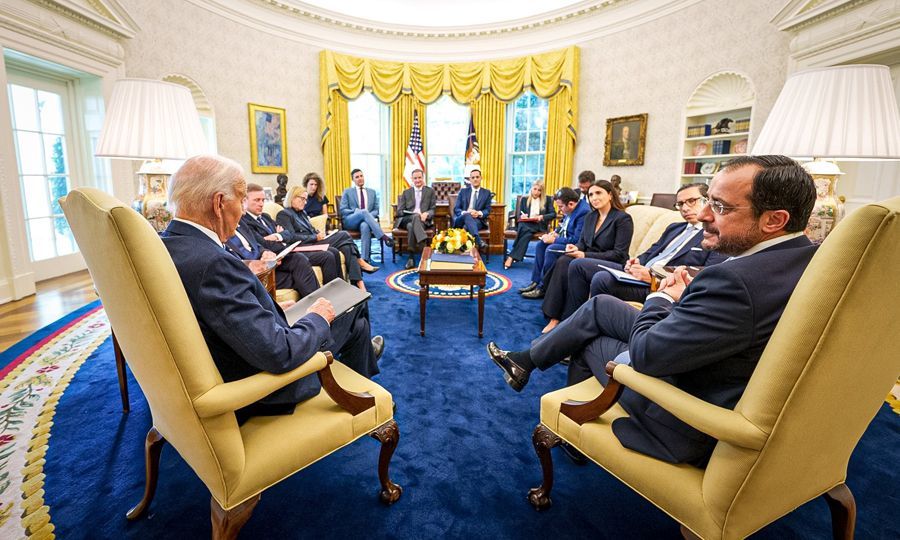

Marina Economides
If anything was clear during the U.S. election campaign, it’s that this election isn’t just about the United States. The stakes extend beyond who would succeed Joe Biden, touching on how the outcome could reshape the international landscape. Against a backdrop markedly different from 2016 — marked by geopolitical crises, security challenges, inflation, and concerns over democracy itself — the potential return of Donald Trump has already raised alarms among NATO allies in Europe and is likely to impact Cyprus’s approach to foreign policy.
What Trump’s victory could mean for Cyprus after Biden’s diplomatic efforts
Although solid conclusions about Trump’s political course will only emerge once he formally takes office in January, we can analyze his campaign promises and past statements. Trump has reiterated his stance against starting new wars, focusing instead on ending existing conflicts. Notably, the U.S. has been a principal ally of Ukraine in its conflict with Russia, yet Trump has repeatedly promised to negotiate a peace deal with Vladimir Putin, even suggesting he could end the war within 24 hours. This likely signals a reduction in U.S. financial support for Ukraine, which could shift regional dynamics in Putin's favor. Former Russian President Dmitry Medvedev has already hailed Trump’s victory as a setback for Ukraine, underscoring the implications.
Eroding international law and potential repercussions for Cyprus
At a time when the role of the United Nations and the very framework of international law appear under strain, the Cyprus issue — grounded in international law and supported by the UN — may find itself in a more precarious position. Trump's previous tenure raised questions about the UN peacekeeping force's presence in Cyprus, and his admiration for Turkish President Recep Tayyip Erdogan has spurred Erdogan’s hope for a “more just world” and closer ties with the U.S. Trump’s isolationist policies, driven by a reluctance to entangle the U.S. in regional conflicts, could strengthen Turkey’s hand in the region, potentially complicating efforts to resolve the Cyprus issue.
Shifting from optimism to reflection
Trump's re-election raises pressing questions for Cyprus, especially after President Nikos Christodoulides recently met with Joe Biden, a diplomatic milestone for Cyprus and a strategic move for Biden in courting Greek-American voters. However, some in Cyprus now worry this achievement could backfire under Trump’s administration. While bilateral state relations are expected to remain stable, Trump’s avowed non-involvement in foreign disputes suggests the U.S. is unlikely to actively support a solution to the Cyprus problem or encourage renewed negotiations.
Empowering extremism: A global ripple effect
More than Trump’s victory itself, the broader concern lies in how his leadership could embolden extreme voices worldwide. Leaders like Viktor Orban in Hungary, Javier Milei in Argentina, Erdogan in Turkey, and Israel’s Benjamin Netanyahu have already expressed support, while Trump’s rhetoric on mass deportations, nationalism, and disregard for democratic institutions signals a shift that could inspire similar sentiments globally. In Cyprus, Trump’s win has garnered applause from groups like Elam, with former DISY vice president Marios Pelekanos applauding it as a “return to common sense” — a sentiment that raises concerns about potential echoes of Trump’s policies within Cyprus.
































